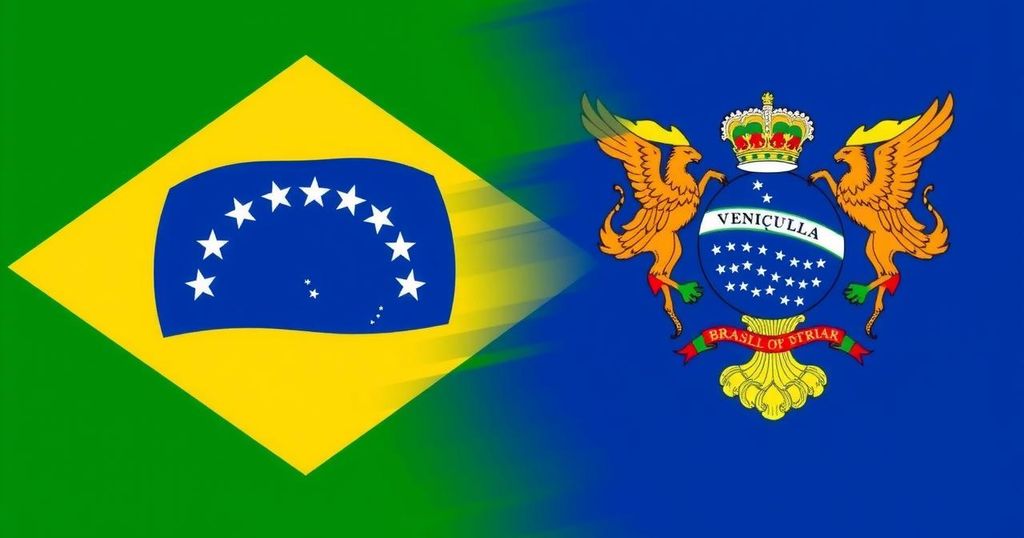Venezuela Critiques Brazil’s Veto of BRICS Membership as a Hostile Action
On October 24, 2023, Venezuela condemned Brazil’s veto of its BRICS membership application, calling the action a “hostile gesture” contributing to a broader sanctions policy. The Venezuelan government criticized Brazil for echoing former President Bolsonaro’s stance and expressing feelings of indignation from its citizens at the continuation of exclusionary practices. In response to Venezuela’s absence from the BRICS expansion, President Maduro reaffirmed his request for membership. Meanwhile, disagreements between Brazil and Russia regarding Maduro’s legitimacy remain unresolved, influencing the bloc’s membership criteria.
The Venezuelan government has openly criticized Brazil’s veto regarding its entry into the BRICS bloc, characterizing the action as a “hostile gesture” that contributes to the ongoing “criminal policy of sanctions.” The condemnation was expressed in a statement released by the Venezuelan Foreign Ministry following the conclusion of the BRICS summit held in Kazan, Russia, from October 22 to 24, 2023. The Foreign Ministry contended that Brazil, represented by diplomat Eduardo Paes Saboia, reiterated a veto reminiscent of the policies previously enforced by former President Jair Bolsonaro. This decision, according to Venezuela, fosters an environment of “hatred, exclusion, and intolerance” that has persisted against its citizens over the last decade due to actions taken by the “great centers of power.” The statement conveyed the sentiments of the Venezuelan people, expressing their “indignation and shame” in response to the “inexplicable and immoral aggression by Itamaraty,” which perpetuates Bolsonaro’s detractors against the Venezuelan Bolivarian Revolution initiated by Commander Hugo Chávez. Additionally, Venezuelan President Nicolás Maduro officially requested membership in BRICS in May 2024. However, reports indicate Brazil’s reluctance to permit Venezuela’s entrance into this group of partner states leading up to the Kazan summit. Ultimately, 13 countries were invited to join BRICS as partner states, while Venezuela was notably absent from this list. During the summit, Brazilian Foreign Minister Mauro Vieira announced that the leading BRICS nations had established a consensus on the “criteria and principles” governing future expansions of the group. President Vladimir Putin indicated that unresolved differences about Venezuela’s entry continue to exist between Brazil and Russia, pointing to Brazil’s refusal to acknowledge the legitimacy of Nicolás Maduro’s presidential election as the primary reason for the veto. Although Nicolás Maduro was declared the victor in the July 28 election by the National Electoral Council, the far-right opposition disputes these results, claiming they possess evidence validating their candidate’s victory. However, they have yet to submit this evidence to Venezuelan courts. In recent statements, President Lula has raised concerns regarding the reliability of results presented by both the government and opposition, calling for transparency from the CNE and suggesting new elections as a potential solution.
The issue of Venezuela’s entry into BRICS has been a point of contention, influenced by the political dynamics surrounding President Nicolás Maduro’s government and its legitimacy following the elections held in July 2023. The election results have been contested by the opposition, leading to a refusal from Brazil, under President Lula, to publicly recognize these elections. The broader geopolitical context, including the relations between Brazil, Russia, and Venezuela, plays a significant role in the discussions about BRICS expansion and membership criteria. The recent summit in Kazan highlighted these tensions and Brazil’s firm stance against Venezuelan participation in BRICS.
In summary, Brazil’s veto against Venezuela’s entry into BRICS has elicited strong reactions from the Venezuelan government, which has labeled the decision as a continuation of hostile policies from previous administrations. Despite the absence of Venezuela from the list of newly invited countries to BRICS, the discussions at the Kazan summit underscored ongoing geopolitical divides related to electoral legitimacy and foreign policy in South America. The implications of Brazil’s decision resonate with the ongoing narrative concerning sanctions and international relations within the region.
Original Source: www.brasildefato.com.br








Post Comment